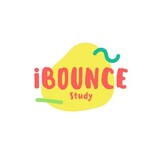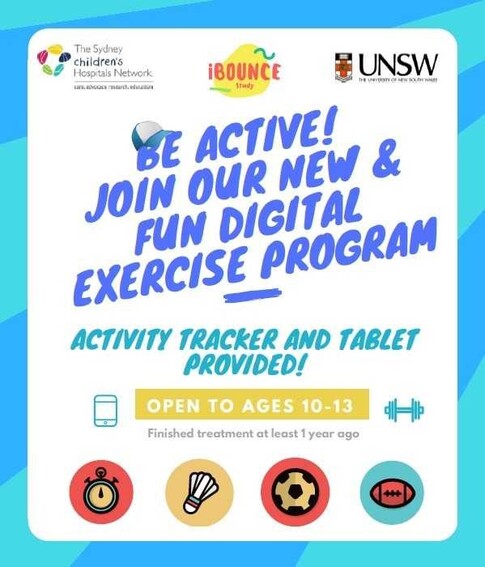
The iBOUNCE Study is a distance-delivered program that aims to educate childhood cancer survivors about healthy behaviours such as participating in regular physical activity, fitness and reducing sugar intake. The program includes an App on a tablet which is connected to wearable activity trackers. Survivors will be asked to wear the activity trackers throughout the intervention to assess their daily physical activity levels and behaviours such as intensity of physical activity and steps walked per day.
The benefit of iBOUNCE is that it offers survivors an intervention that can be easily used in their everyday lives and does not require regular trips to the hospital. The study only requires two visits to the hospital (before and after the intervention). This is especially important for families who live in rural and remote areas who may not have easy access to allied health professionals and programs to help their child develop healthy behaviours.
Ultimately, the study hopes to foster healthy behaviours in child survivors of cancer by educating the importance of regular physical activity and healthy eating. A key strength of our program is that it provides children with fun exercises and activities that involve the family to emphasise the importance of peer support and to further facilitate behaviour change.
The iBOUNCE Study is now recruiting eligible participants at the Sydney Children’s Hospital.
Study Inclusion Criteria:
- Child survivors of cancer aged 8-13 years old
- Finished treatment over 1 year ago
- Internet access at home

 RSS Feed
RSS Feed